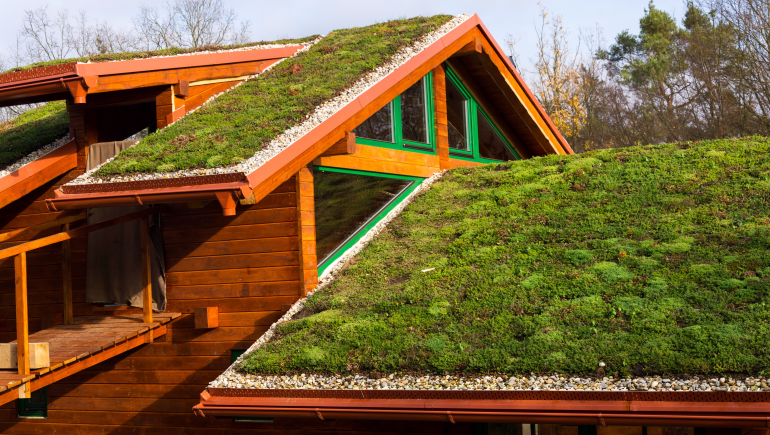7 green ideas to consider when buying a home
While purpose-built green homes are becoming more common, they’re still hard to find.
If you’re looking to move to a more eco-friendly place, the next best thing is to either find one with as many green attributes as possible, or one that can be updated.
If you’re on the hunt for one of these homes, here are some ideas to keep in mind.

1. Commute
Rather than using a car, check for other transportation options nearby. Are you near a SkyTrain station, bus stop, or bicycle path? Consider looking for a place within walking distance of your workplace. This not only eliminates carbon emissions, it’s healthy too!
2. Sun aspect
A southerly-facing home will provide more warmth in the winter. The sun is lower in the sky and will penetrate through the windows. In the summer, the sun is high so there’s not as much direct sunlight into the home. Places with greater roof overhangs will keep cooler during the summer.
3. Environmentally compatible landscaping
A diverse, vibrant garden that has native or drought-resistant plants reduces water consumption and increases biodiversity. Flowering trees and plants attract bees and butterflies. Sunny spots to grow vegetables, a composting system, and rain barrels can also make your lifestyle more eco friendly. Also consider how much of the garden is lawn – this area could be put to better use.
4. Energy efficiency
Energy efficient practices save you money. Ask how the building is insulated. Unless already upgraded, older homes may have an insufficient amount of insulation. Look at window and door casings for cracks or spaces for warm air to leak out and see if there’s a smart thermostat. The appliances should be certified energy efficient. If appliances aren't included in the contract, consider getting smaller versions. Ask if an energy audit has been done.
5. Green roof
Is it possible to install a green roof? It provides added insulation to help keep your home cooler in summer and warmer in winter. Planting flowers and a variety of grasses increases biodiversity and will attract bees and butterflies. Rain is absorbed by the roof, allowing less water to enter the gutters and drains.
6. Home office
Working remotely, even one or two days a week, will mean less pollution, especially if you commute using a car. If there isn’t an existing home office, see if there’s enough room to set one up.
7. Downsize
Consider downsizing to a smaller home. They’re less expensive to buy, heat, and furnish, which ultimately means less waste.
 The Largest Number of Homes for Sale
The Largest Number of Homes for Sale